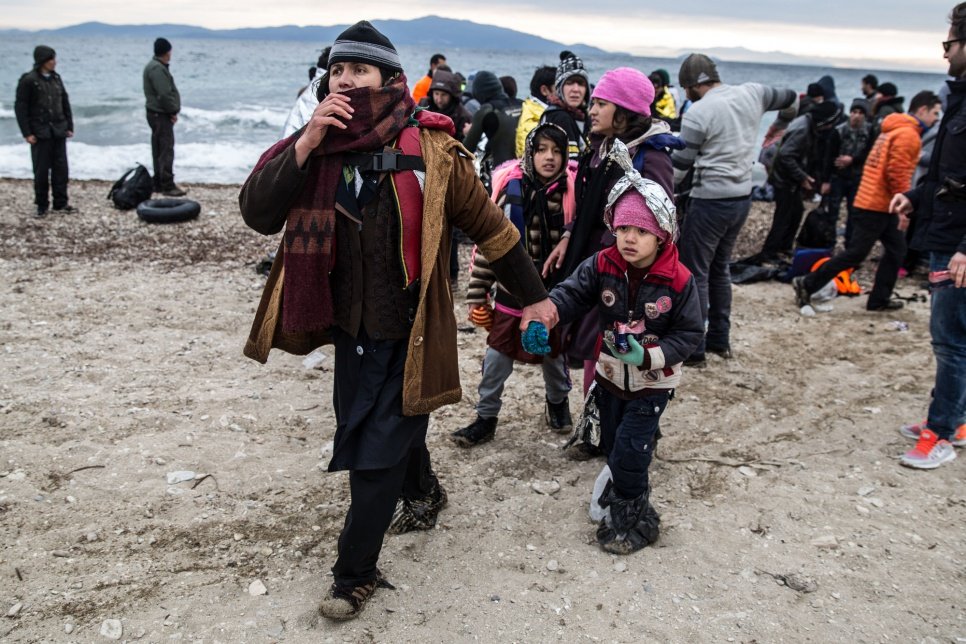
The European Court of Justice (ECJ) ruled April 2 that Poland, Hungary and the Czech Republic failed to uphold their obligations regarding refugee quotas as required by law. The countries could face financial penalties for their actions. In 2015 EU leaders established a refugee relocation program in response to the large numbers of asylum-seekers from war-torn Syria and elsewhere in the Middle East. EU countries were supposed to apportion a share of asylum-seekers among those that arrived in Greece and Italy. Poland and the Czech Republic, according to the ECJ, “failed to fulfill their obligations under European Union law” by not accepting the number of refugees they had promised.
While Poland and the Czech Republic failed to deliver on their promises regarding the 2015 agreement, Hungary failed to take even the first step of determining the number of refugees it could relocate. The Czech Republic took in only 12 asylum seekers from Greece, even thought it had said it would accept 50. Germany, in contrast, took in nearly one million asylum-seekers.
The ECJ rejected arguments that the European Commission‘s prosecution in the case was invalid. “[T]he burdens entailed by the provisional measures” of the resettlement program “must, in principle, be divided between all the other Member States, in accordance with the principle of solidarity and fair sharing of responsibility between the Member States,” the court wrote. It held that “the Commission did not in any way exceed the limits of its discretion” in prosecuting the states over their inaction.
Poland and Hungary also argued that they could justify refusing refugee resettlement on national security and public safety grounds. These contentions were likewise rejected by the ECJ. “[U]nder the relocation decisions,” notes the court’s press release, “national security and public order were to be taken into consideration throughout the relocation procedure.” Thus, the countries could not “peremptorily” derogate from treaty obligations to follow EU law “without establishing any direct relationship with a particular case to justify suspending the implementation of or even ceasing to implement its obligations.”
From Jurist, April 2. Used with permission.
Note: The relocation program for the some 160,000 designated asylum-seekers lapsed in 2017, so there is now no practical way to compel Poland, Hungary and the Czech Republic to take in more asylum-seekers. It is up to the European Commission, executive arm of the EU, to decide what to do next, the ECJ stated. The United Nations estimates that 112,300 asylum-seekers and refugees are currently in Greece, including 41,100 on Greek islands and 71,200 on the mainland. (NYT)
Photo: UNHCR/H.Holland





EU court condemns Hungary’s migrant transit zone
Hungary high court rules against government on migrant policy
The Hungarian Constitutional Court on Dec. 10 ruled against a petition from Prime Minister Viktor Orban’s government seeking to challenge a ruling from the Court of Justice of the European Union that held Hungary’s asylum policies broke European law.
The Constitutional Court held that while Hungary was able to exercise authority over its territory and population as a matter of sovereignty, the country was only able to exercise its interpretations of asylum law when such interpretations were not already covered completely by European law, and that its expulsions of asylum-seekers was likely illegal.
The petition was brought by the Hungarian Ministry of Justice, which sought to obtain a ruling that would permit the Hungarian government to continue to immediately deny asylum to non-EU migrants seeking to cross into Hungary from Serbia. This request followed a November ruling by the Court of Justice of the European Union (CJEU), stating that Hungary’s restrictions on asylum seekers’ freedom of movement was in violation of the Charter of Fundamental Rights of the European Union. The Hungarian government at the time announced an inability to comply with the CJEU’s ruling until its Constitutional Court had ruled on the issue as a matter of Hungarian law. (Jurist)